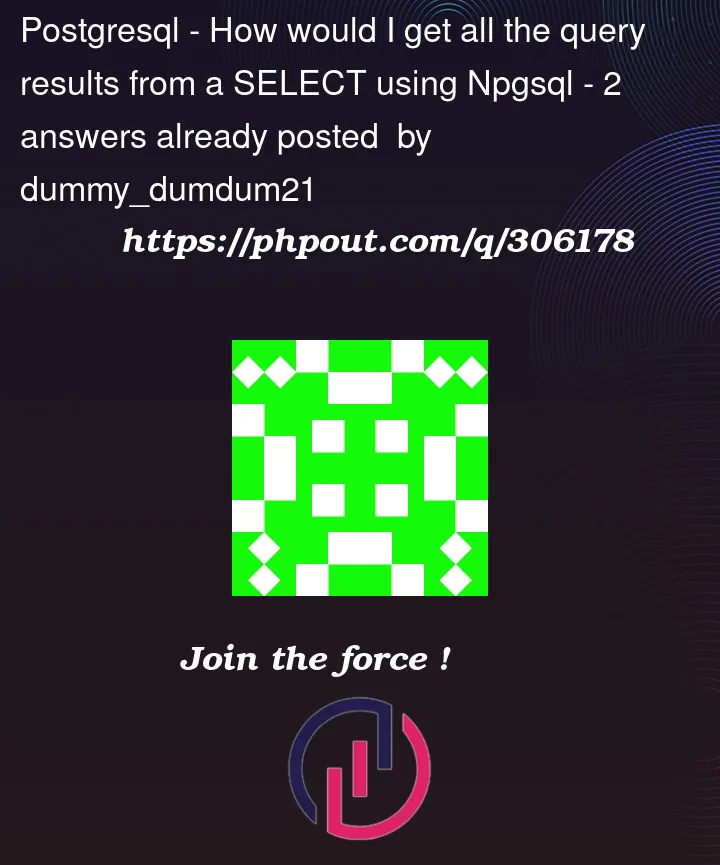I need to get the results of a query as JSON but I’ve been having issue if a column is a JSONarray: it gets converted to string
The current code I’m using:
var result = new List<Dictionary<string, object>>();
await using (var cmd = new NpgsqlCommand("SELECT * FROM global", conn))
await using (var reader = await cmd.ExecuteReaderAsync())
{
while (await reader.ReadAsync())
{
var row = new Dictionary<string, object>();
for (int i = 0; i < reader.FieldCount; i++)
{
row[reader.GetName(i)] = reader.GetValue(i);
}
result.Add(row);
}
}
var jsonResult = JsonConvert.SerializeObject(result, Newtonsoft.Json.Formatting.Indented);
Console.WriteLine(jsonResult);
The output:
[
{
"id": 1,
"banned": false,
"strikes": "[]"
},
{
"id": 2,
"banned": false,
"strikes": "["nooob"]"
}
]
The EXCEPTED output:
[
{
"id": 1,
"banned": false,
"strikes": []
},
{
"id": 2,
"banned": false,
"strikes": ["nooob"]
}
]




2
Answers
It seems that by default Npgsql will map JSON column to string, so you will need to parse it to JSON so serializer will treat it correctly (otherwise it you will get the value "double" encoded as you experience). Something along these lines (not tested):
Note that according to docs you can change the default mapping. For example by using
NpgsqlJsonNetExtensions(since you are using the Newtonsoft Json.NET serializer), so you don’t need to manually do this:or
Or you can consider providing mapping to some defined type – see the POCO mapping docs.
The issue is due to the JSON array being read as a string. To fix this, you need to check if the data type of a column is a JSON array and then parse it accordingly.